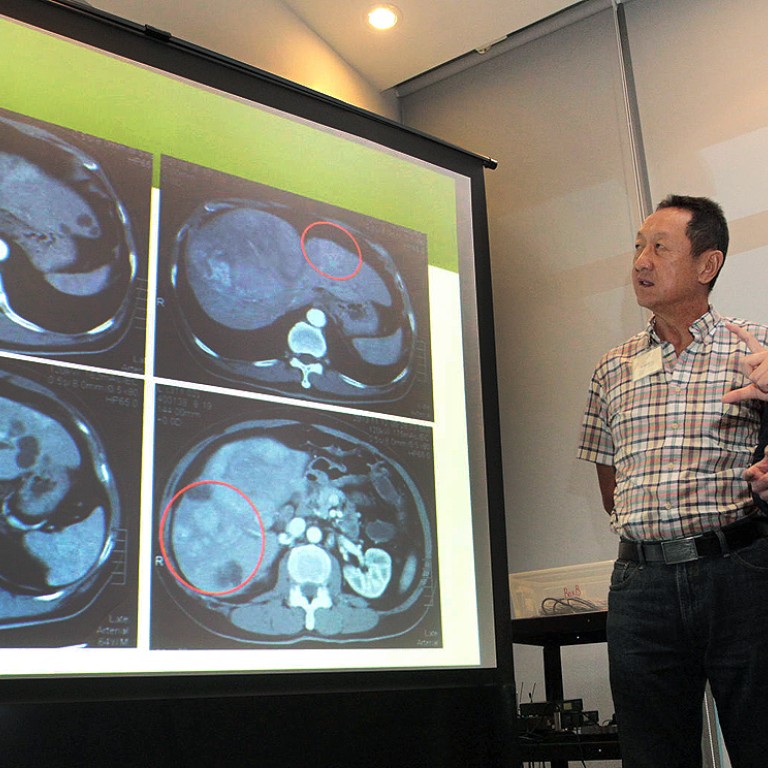
HKU researchers' new liver cancer system helps prolong patients' lives
New classification scheme delivers more targeted treatment, allowing patients suffering from city's third most deadly cancer to live longer
Hong Kong researchers have developed Asia's first system that classifies liver cancer patients into different stages to receive more targeted treatment.
The new system, compared with the standard categorisation, appears to have doubled patients' median survival time and improved the survival rate of those in the cancer's more advanced stages.

"Improving treatment guidelines is critical to reducing liver cancer deaths both locally and globally," said Ronnie Poon Tung-ping, of the University of Hong Kong medicine faculty's surgery department.
Although Asia accounts for over 80 per cent of global liver cancer deaths each year, it did not have its own system to split patients into stages for different types of treatment until now.
The Hong Kong Liver Cancer staging system divides sufferers of liver cancer into five stages of the disease's progression based on the patients' performance status, liver functions and extent of tumours.
It was developed by HKU and Queen Mary Hospital researchers after they studied 3,856 cases treated at the Pok Fu Lam hospital from 1995 to 2008. The older, widely used Barcelona Clinic Liver Cancer system has just four stages.
The new system recommends more aggressive surgical treatment for patients with advanced multiple or more complex tumours, thus improving their chances of survival, said Poon, who was part of the team that came up with the system. The old system recommends such patients undergo only "palliative treatment" such as chemotherapy and electrotherapy, which do little to cure the disease, he said.
Researchers found that treatment under the new system doubled patients' overall median survival time to 16.6 months and increased the five-year survival rate of those with multiple and more complex tumours from zero to 50 per cent.
There are doubts over whether the city's understaffed public hospitals can cope with the additional operations recommended by the new system.
However, HKU clinical assistant professor Dr Thomas Yau Chung-cheng says the system may in fact reduce the amount of resources required in the future because there would be fewer patients in need of long-term alleviating treatment.
The system was published in the international medical journal in June. In July, it was recommended as a regional standard at the annual Asia-Pacific Primary Liver Cancer Expert Meeting, Yau said.
He added that he hoped hospitals in the United States and Europe would also adopt the system in the next two years.
Liver cancer is the third leading cause of cancer deaths in Hong Kong.

